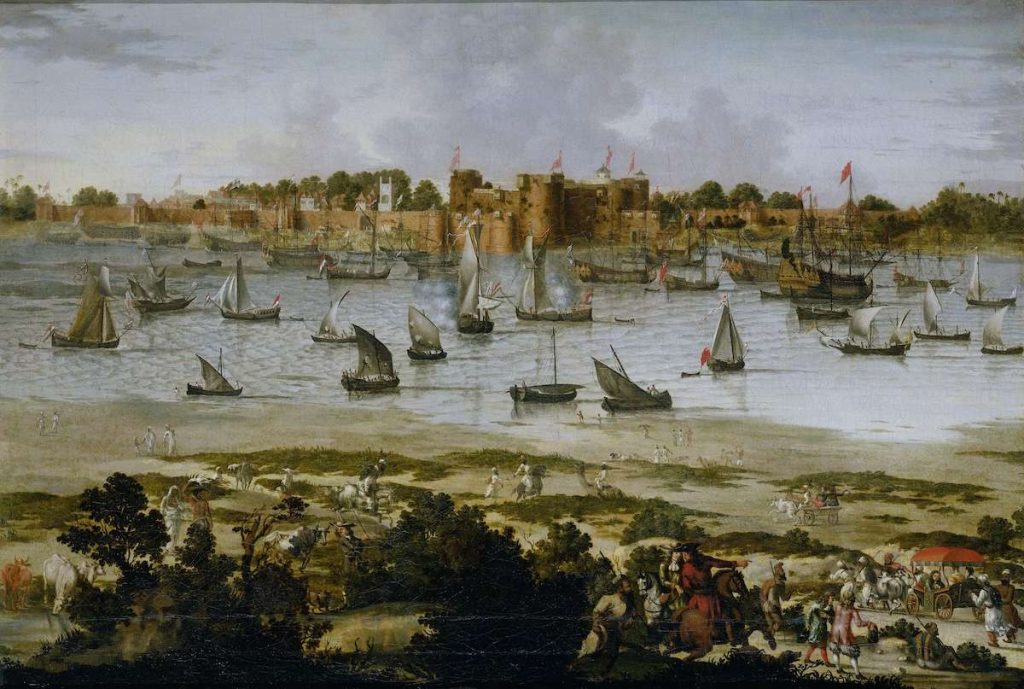Symposium: Colonial Archives and Meaningful Digital Infrastructure
Datum: vrijdag 24 januari 2025
Tijd: 10:00 – 15:00 CET
Locatie: Radboud University, Thomas van Aquinostraat 4, 6525 GD Nijmegen
Organisatie: Globalise, Comatting Bias, Resisting Enslavement, Radboud Institute for Culture & History
Voertaal: Engels
Hoe kunnen digitale infrastructuren voor koloniale archieven een beter begrip van historische en hedendaagse kwesties ondersteunen? Dit symposium brengt onderzoekers en professionals samen om de uitdagingen en kansen van het werken met gedigitaliseerde koloniale archieven te bespreken.
[Tekst gaat verder in het Engels]
Key topics
- Colonial archives and global significance
Reflect on the relevance of these archives for understanding shared histories and their broader implications. - Text recognition and digital access
Explore what comes after digitization and how to create meaningful tools for using complex historical records. - Biases in the archive
Address the inherent biases in colonial records and their impact on research and public access. - Reaching new audiences
Consider how digital infrastructures can engage diverse groups, including descendants of colonized communities.
Event overview
Many archives related to the Dutch colonial past have been digitised in recent years. From the archives of the VOC and WIC to early modern family, notarial, and business archives. These archives are closely intertwined with the colonial past itself. They contain information that sheds light on the (everyday) consequences and experiences of colonialism worldwide. These archives also provide access to information about non-European societies that is often not preserved in other ways. Colonial archives are often literally world heritage. More and more archives are therefore being made accessible through digitisation and text recognition. But as rich and diverse as these archives are, they are not neutral.
Challenges and questions
The symposium Colonial archives and meaningful digital infrastructure explores challenges, questions, and examples surrounding digital access and enrichment of shared resources related to the colonial past.
- How can digital infrastructure contribute to making unique information about the people and societies affected by or resisting colonialism findable and researchable?
- How can multiple perspectives and the many voices in these archives be made more visible?
- How can we ethically employ new techniques?
- And who are the true beneficiaries of advanced access and research infrastructure?
- Who should these initiatives serve, and how can global stakeholders beyond Dutch and professional users be reached (such as the descendants of colonized societies and of those societies whose pasts can be reconstructed using these archives)?
New approaches
Last spring, the advice Dealing with shared sources of the colonial past. Advice on repair and restitution in relation to colonial archives by the Dutch Council for Culture called attention to the role that a responsible handling of colonial archives can play in a better understanding of the impact of colonialism worldwide and its legacies to the present day. It also emphasised that colonial archives themselves are often tools that serviced colonial rule, and whose accessibility has often accentuated the flawed and one-sided perspectives that they bear.
New approaches are thus key to ensuring that new digital access and user infrastructures do not amplify colonial distortions or injustices, but instead contribute to dialogues in, and between, former colonizer and colonised societies. This leads to the question: how can digital infrastructures for colonial archives contribute to a better understanding of past and present in a complex world of present-day inequalities and memory cultures?

View of the Harbor of Sūrat (Gujarāt), anonymous, c. 1670 Rijkmuseum, SK-A-4778, CC0